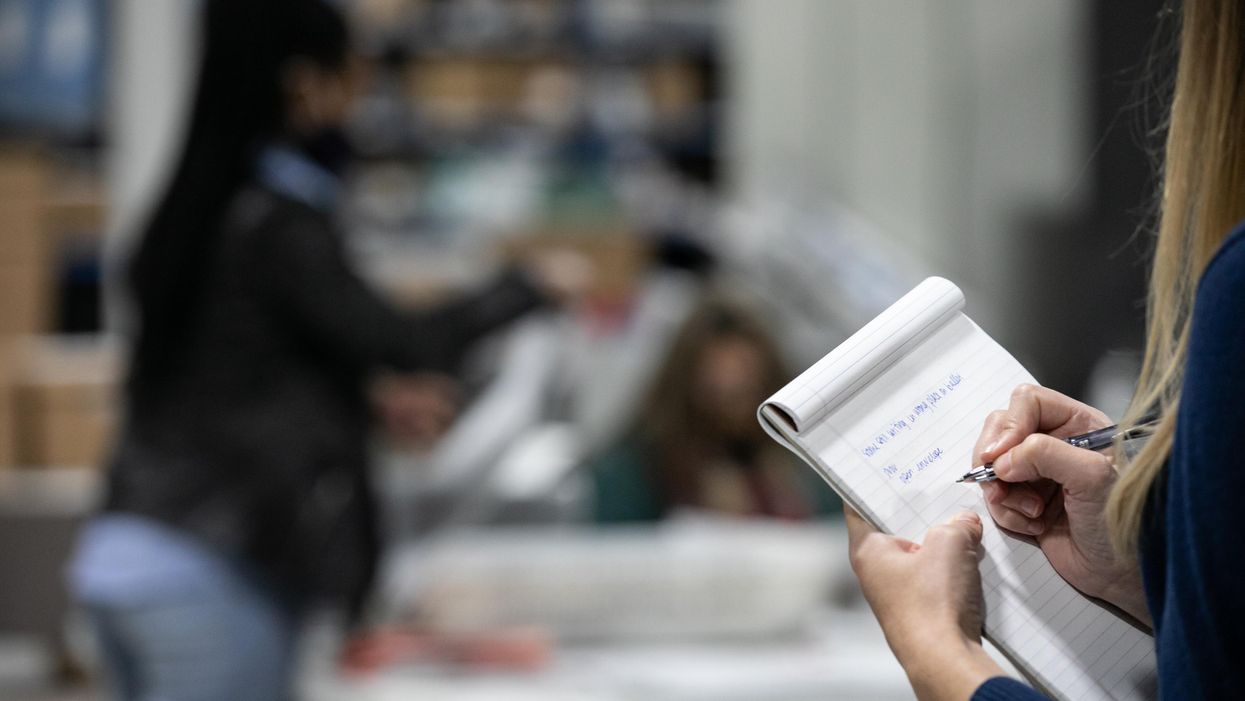To say that election administration has become, in many states and cities, a partisan affair would be an understatement: Legislation, audits and political appointments have become new tools in increasingly bitter battles over how elections are managed. One way to restore trust in elections would be to increase the role of nonpartisan observers, according to a new report.
Each state makes its own rules governing who may observe elections, and at what stage. But in 2020, as the Covid-19 pandemic raged across the country, the rules were modified in many places to ensure the health of all involved. Those restrictions led to more partisan fighting over the ballot-counting process, even though security officials said the election “ was the most secure in American history ” and numerous audits have confirmed outcomes.
To ensure faith in, and integrity of, future elections, researchers with the Alliance for Securing Democracy and Carter Center urge officials to enhance the role of nonpartisan observers.
Many states allow partisan election observers, who watch for irregularities that could harm their candidates, whereas nonpartisan election observers watch for wrongdoing by anyone involved, regardless of party and can help head off problems in real time. But the report’s authors — Avery Davis-Roberts, associate director of the Democracy Program at The Carter Center, and David Levine, an elections integrity fellow at the Alliance for Securing Democracy — are not looking to replace partisan observers. Instead, they want to supplement that work.
“Having observers from political parties watching the election to ensure that it doesn’t disadvantage their preferred candidate or political party is important,” they said in response to questions from The Fulcrum. “However, we also need enough nonpartisan observers focused on ensuring compliance with election administration rules and procedures. Internationally we see that the combination of partisan and nonpartisan observation together can be a powerful force for promoting confidence in election processes.”
More states allow partisan observers than permit nonpartisan observers. But the researchers make balancing those numbers their first recommendation.
“Recent U.S. elections, especially the 2020 presidential election, have demonstrated that partisan observation is no longer sufficient to engender the trust that elections have been conducted fairly,” they wrote in the report. They point to the spread of mis- and disinformation and the enactment of new laws making it easier for people to interfere with vote-counting.
They also cite research showing that the presence of partisan and nonpartisan observers will increase faith in the integrity of elections.
In addition to calling for nonpartisan observers in every state, Levine and Davis-Roberts want all observers to have access to as much of the election process as possible, without compromising the results. This means getting them in during the pre-election process (which includes equipment testing), carrying on through in-person voting and the processing of mail-in ballots, and post-election work (like vote-counting).
“State and local election officials have repeatedly demonstrated that they know how to ensure that any voting location can be made both secure and observable,” the report states. “Prohibiting such observation needlessly raises suspicions and provides an additional way for bad actors to try to undermine public trust in the electoral process.”
The third recommendation calls for in-person observers rather than the remote access that was provided in many places during the 2020 election. Doing so avoids the spread of false allegations of vote-tampering, like what occurred in Georgia during the last election.
While the initial recommendations focused on improving access for nonpartisan observers, the final proposal calls for some limits and demands good conduct among the watchdogs.
“While it is essential that election observers are allowed sufficient access to watch and accurately understand what is occurring, it also is important for there to be clear guidelines for their access and activities, including reasonable limitations,” the report states.
Such limits could include restricted movement by observers to avoid crowding of election officials and voters. And the observers should undergo training to stay on top of election laws, to conduct themselves properly and to know how to report their findings.
As the nation witnessed with the recent partisan fighting over federal election laws, there is no simple way to implement these changes. Instead it needs to be handled on a state-by-state basis.
“In some states, local jurisdictions can unilaterally decide to allow nonpartisan observers. In other states, allowing nonpartisan observers will require state intervention, either from state legislators or administrators,” Davis-Roberts and Levine said.
But even that may be overstating what’s needed. Until the aftermath of the 2020 presidential contest, many election administration roles were unofficially exempted from the partisanship that otherwise has gripped U.S. elections. But now state and local positions have been targeted for partisan advantage, and it will be incumbent on officials to make sure nonpartisan observers remain just that — nonpartisan.
Davis-Roberts and Levine believe that can be accomplished “by emphasizing the nonpartisan nature of this initiative, and highlighting that champions of fair election processes come from across the political spectrum.”
“Nonpartisan observation has helped ensure the administration of free and fair elections in countries across the world. Adopting more of it in the United States could help deter actual fraud and intimidation, increase trust in our elections, and help ensure peaceful transfers of power,” they said.




















Trump & Hegseth gave Mark Kelly a huge 2028 gift